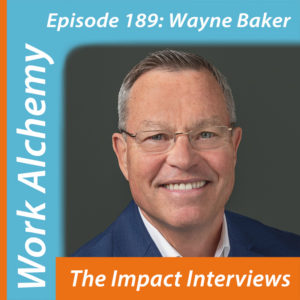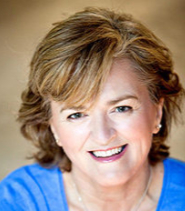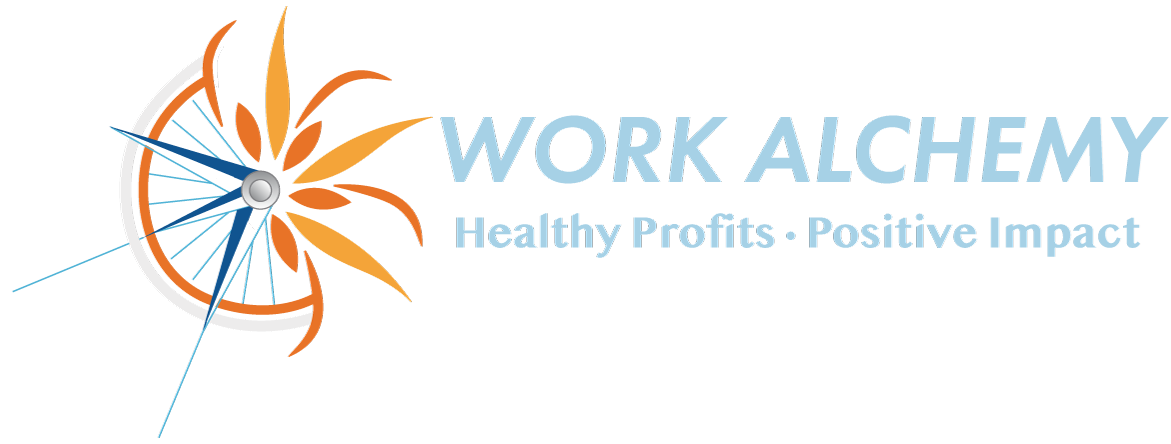
Consultant, author, and researcher Wayne Baker joins us on the podcast to talk about asking for help, why it’s important and beneficial both to you and your organization. Wayne gives practical tips and ways to develop this important behavior.
Dr. Wayne E. Baker is the Robert P. Thome (“Toe-May”) Professor of Business Administration and Professor of Management & Organizations at the University of Michigan’s Ross School of Business. He is also Professor of Sociology at the University of Michigan and Faculty Associate at the Institute for Social Research, and currently serves as Faculty Director of the Center for Positive Organizations.
His teaching and research focus on social capital, social networks, generosity, positive organizational scholarship, and values. Dr. Baker is author of the book All You Have to Do Is Ask as well five other books and numerous scholarly articles. He has published management and leadership articles to such outlets as Harvard Business Review, Chief Executive Magazine, Sloan Management Review.
Dr. Baker puts his knowledge into practice as a frequent guest speaker, management consultant, and as a cofounder and board member of Give and Take Inc., developers of the Givitas collaborative technology platform based on the principles in his new book.
He has won various awards, including the Senior Faculty Research Award from the Ross School of Business and the Best Article Published in 2014 – 2016 from the American Sociological Association Section on Altruism, Morality, and Social Solidarity.
Prior to joining the Michigan faculty, he was on the faculty at the University of Chicago business school. He earned his Ph.D. In sociology from Northwestern University and was a post-doctoral research fellow at Harvard University. He lives in Ann Arbor with his wife, son, and a Birman cat.
3 Key Points
- Others don’t know what you need until you ask.
- Entrepreneurs’ networks can be an excellent resource for asking for help. Other leaders have faced similar problems and received the help they needed.
- Pause and ask yourself, “what kind of help do I need right now?”
Quote
“If you don’t make yourself vulnerable, you just won’t have the impact you want… you need to make requests of people—to be vulnerable—to have the impact you want.”
What We Talked About
In this episode, you’ll learn:
- 01:12 – Do people often get confused about what causes their burnout?
- 02:40 – Why does, “help rarely arrive unasked for”?
- 04:22 – What are the four styles people use when they need help?
- 06:30 – Do entrepreneurs usually fall into the stereotype of lone wolf?
- 08:43 – What are the benefits of consciously asking for help?
- 11:10 – Tell us about the social costs of asking for help
- 14:15 – How do you figure out the who and how of asking for help?
- 19:30 – Does being asked for help increase collaboration?
- 24:13 – Do you think that the growing understanding of vulnerability has made it easier to be vulnerable in the workplace?
- 27:55 – What are the differences between autonomous and dependent help-seekers?
- 30:00 – Does asking for help make you a better leader?
- 32:20 – How does asking for help tie in with consultancy?
- 35:40 – Who do you work with in the Positive Network?
- 36:30 – Do you see B Corps and conscious capitalism as related to positive psychology in business?
Actionable Tips
- Find greater impact by working in a group or network.
- Reach out and ask for help as soon as you need it.
- Consider your biggest challenges and how to ask others for help in addressing them.
Resources Mentioned
- You can get a free assessment on Wayne’s website.
- Wayne’s book: All You Have to Do Is Ask.
- You can reach out to Wayne via email.
- Center for Positive Organizations at University of Michigan
Resources for Your Business
Click here for free resources to increase the impact of your business.
Support the podcast
If you find the podcast valuable, click here to make a donation to support the podcast. Thank you!

Ursula Jorch, Host of The Impact Interviews
Ursula Jorch is a business coach, speaker, and podcaster who shows women leaders how to turn their businesses into profitable agents for lasting change, global impact, and a force for good in the world.

